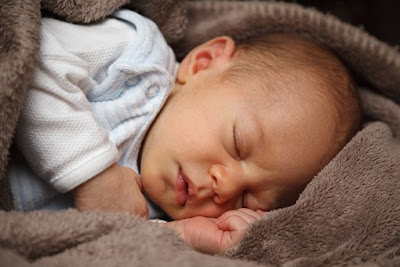Learning Challenge | H.E.A.R.T. - Sleep
It's a tale as old as time - everyone needs their beauty sleep. It comes as no surprise that sleep fuels everything of our physical nature. Furthermore, sleep is necessary to stay healthy. Without adequate hours asleep, our bodies are more prone to becoming sick. After reading the article Yes, Your Sleep Schedule Is Making You Sick, many ideas about sleep and health were confirmed; along with that, I was introduced to some new connections and discoveries about this crucial relationship.
I had already learned that light patterns and circadian rhythms can affect your mood. After reading a study done in a hospital on patients receiving different window lighting, I was able to confirm this prior knowledge. The study found that those who had windows facing the east and receiving sunlight in the morning were healthier and released earlier. This was due to the light's anti-depressing effects on people.
Something interesting that I learned was that depression is linked to an offset in a person's circadian rhythm. When a person struggles with depression, their body releases melatonin earlier in the evening than those who are not depressed. The brain takes signals from both light and hormones so this imbalance is important and should be noted. Researchers found that by allowing sleep deprivation for one night, a person can hopefully return to their body's optimal rhythm.
After reading this, I want to do more research into chronotherapy, which alters circadian rhythms by exposing the patient to light at earlier times in the day to make them fall asleep earlier. I would like to learn if this treatment is as useful on children as it is adults. To further this research, it would be interesting to ask how the INTEGRIS Sleep Disorders Center of Oklahoma handles chronotherapy and their experience with different age groups. Hopefully, the chronotherapy is as effective on children as it is adults, which helps everyone to get a good nights sleep.
I had already learned that light patterns and circadian rhythms can affect your mood. After reading a study done in a hospital on patients receiving different window lighting, I was able to confirm this prior knowledge. The study found that those who had windows facing the east and receiving sunlight in the morning were healthier and released earlier. This was due to the light's anti-depressing effects on people.
Something interesting that I learned was that depression is linked to an offset in a person's circadian rhythm. When a person struggles with depression, their body releases melatonin earlier in the evening than those who are not depressed. The brain takes signals from both light and hormones so this imbalance is important and should be noted. Researchers found that by allowing sleep deprivation for one night, a person can hopefully return to their body's optimal rhythm.
After reading this, I want to do more research into chronotherapy, which alters circadian rhythms by exposing the patient to light at earlier times in the day to make them fall asleep earlier. I would like to learn if this treatment is as useful on children as it is adults. To further this research, it would be interesting to ask how the INTEGRIS Sleep Disorders Center of Oklahoma handles chronotherapy and their experience with different age groups. Hopefully, the chronotherapy is as effective on children as it is adults, which helps everyone to get a good nights sleep.
(Sleeping Baby. Web Source: pixabay)


Oh, this is GREAT: I am glad you took a look at this set of challenges. There is so much here at the HEART blog that is relevant to the medical field and to all the health helping professions. Super! And thank you again for all these posts. I don't get to reply to all the posts when things get going next week, so it is really nice to have the chance to get to know some people this week. Happy New Semester!
ReplyDelete